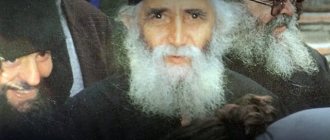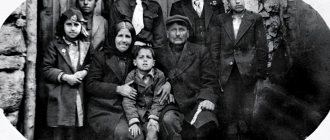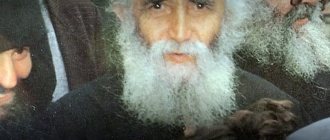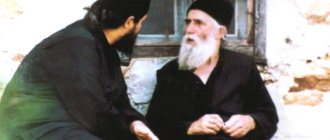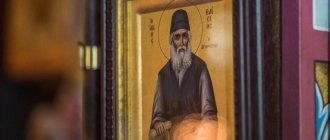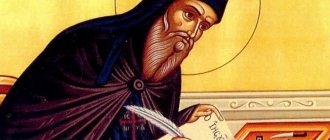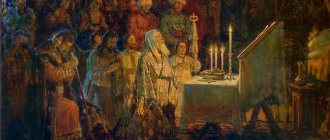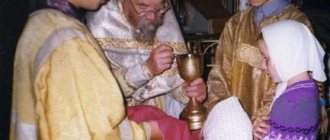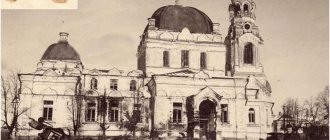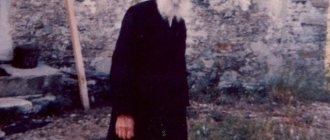Among the huge number of Orthodox saints one can find amazing ascetics of all times of Christianity. These are the martyrs of the first centuries, when faith in Christ was mercilessly persecuted and punished by death; these are the holy fathers of the Church, who systematized the Christian doctrine and described all its dogmas; these are the new martyrs who suffered during the years of Soviet repression and many others. Sincere heartfelt prayer before each of them can work miracles. However, almost every Christian believer has his own, especially revered saint, whose prayer is most ardent. For many Orthodox Christians, such a saint was the Athonite elder Paisius the Svyatogorets, who was canonized quite recently, in 2015. However, even during his earthly life, Saint Paisius the Svyatogorets was revered by many people as the true bearer of Christian wisdom and love.
Childhood and youth of Paisius Svyatogorets
Paisiy Svyatogorets was born on July 25, 1924, in the village of Farasy, in a large family. His father, Prodromos Eznepidis, was a man of faith. In everyday life, he was engaged in peasant activities and iron smelting. By character, Prodromos was distinguished by courage, patriotism and justice. Paisios's mother, Eulogia, a deeply religious, hardworking woman, came from the Frangopoulos family and was related to the now famous Arsenios of Cappadocia.
At Baptism, the parents wanted to name their son in honor of his grandfather, but the Monk Arseny, having seen his future life and wanting to give him his blessing, insisted on the name Arseny.
Due to the oppression of Orthodox Christians by Turkish Muslims and due to the population exchange between Turkey and Greece, the family of Arseny (Paisia), together with fellow tribesmen, was forced to emigrate. Upon arrival in Greece, the settlers huddled for some time in the port of Piraeus, then in the fortress of the island of Kerkyra. The Monk Arseny died and was buried here. Finally, the refugees reached the city of Konitsa, where they settled.
From childhood, Arseny (Paisiy) dreamed of becoming a monk, became involved in prayer, and learned humility and abstinence. His parents often told him about the Monk Arseny, whose name he bore from Baptism, and whom Arseny himself later set as an example.
Having learned to read and write, Arseny often read the Holy Scriptures and the Lives of the Saints. They say that sometimes, returning from school, he immediately took up these sacred benefits, forgetting about food. It happened that his older brother, seeing Arseny’s excessive, as it seemed to him, enthusiasm, hid books, but Arseny showed amazing persistence: it got to the point that he ran away to read in the forest. Even then he tried to use the experience of the saints in his practice.
He finished elementary school well, but did not study further; there was no gymnasium in his village. Imitating Christ, who, as is well known, was brought up in a carpenter’s house, Arseny began to learn the carpenter’s craft. At one time he worked with a mentor, and later organized his own carpentry workshop. In addition to household items, he made things for church use and coffins. For the latter, he did not take payment, expressing his compassion and imbued with the pain of heavy losses.
They claim that at the age of fifteen, Arseny was awarded the miraculous appearance of the Savior, which further confirmed him in zeal for the Lord and piety. Soon he turned to the diocesan administration with a request to enter monasticism, but the representative who spoke with him replied that he needed to grow up.
During the Civil War, the communists imprisoned Arseny, but later, having sorted it out, they released him. Due to his brothers' participation in the war, Arseny was forced to shoulder the burden of peasant work, becoming an assistant and support for his mother. The thought of entering monasticism had to be put aside.
War and trials
Having spent his youth in prayer and preparation for monasticism, Arseny also had a time of testing. Difficult war years came and the Greco-Italian War began. When the occupation happened, Arseniy’s family helped the poor, shared bread with the hungry, and helped in every possible way to everyone who needed it. The future elder very much regretted that, due to his young age, he could not help the suffering more - he strove for this with all his soul.
The ensuing Civil War brought new challenges. Arseny was arrested and put in prison. The terrible living conditions of the prisoners, the extreme cramped conditions in the small cells, greatly exhausted the young man. There were some temptations - the prison authorities transferred Arseny to solitary confinement, where they brought two practically naked young girls. Having started to pray, the young man felt his passionate thoughts leaving him and he was able to look at the girls completely calmly. Moreover, he managed to talk to them in such a way that the girls were ashamed and left him in tears.
The communist prison authorities interrogated Arseny, accusing him that his older brother was fighting in the enemy army. To this the ascetic replied that his brother, by right of seniority, does not account to him for his actions, and that Arseny himself cannot influence his brother’s choice. Having found nothing else to accuse him of, the young man was released.
Icon of Paisius of Svyatogorsk
Interesting. After leaving prison, the future elder helped everyone he could - both the communists and their opponents - because he believed that any person was worthy of help and compassion.
The war and the difficulties associated with it forced Arseny to temporarily postpone entering the monastery, since the family was in great need of help. But the young man’s inner spiritual life was still very intense and intense. Strict fasting, tireless prayer, forcing oneself to help and sacrifice for the sake of one's neighbor - all this gradually prepared the soul for monastic obedience.
Debt to the Motherland
But seeing that the Motherland was in danger, Arseny went to defend it with arms in hand. In addition to sincere faith, the young man had both patriotism and duty to the Fatherland. The only thing Arseny prayed for before joining the army was that he would not have to kill any person.
The Lord heard his prayers, and miraculously Arseny received the military specialty of a radio operator, which saved him from the need to kill. During his service, he never stopped serving his neighbors—he happily did other people’s work and replaced soldiers on leave. Some took advantage of his kindness and abused it, but Arseny rejoiced at this too. People far from faith laughed at him, considering him strange, but over time the ridicule faded away and was even replaced by respect. Many considered him a blessing to their unit, almost a talisman in the war.
Icon of Paisios in the temple
The war brought many trials to the future monk. Together with his colleagues, he had to endure hunger, thirst, and cold. Once Arseny had to dig out frostbitten soldiers from under the snow rubble, and he saved as many as 26 people. He himself received severe frostbite on his legs, threatening amputation. But by God’s grace everything worked out, and the young man recovered.
Military service
In 1945, Arseny was drafted into the Army and received the military specialty of a radio operator. The unit in which the future Svyatogorets served took part in the hostilities. Arseny more than once had to experience mortal danger and difficulties, but he did not lose heart, but trusted in God. And God did not leave him.
One day at the shooting range, Arseny witnessed an extraordinary glow, invisible to others. It came from the ravine. Later he found out: convicts were shot at that place, among whom there were probably innocent people. By the providence of God, Arseny was spared from participating in these executions.
Life on Athos
In 1950, after returning from service and a short stay in Konitsa, Arseny went to the Holy Mountain. He wanted to find an elder who would take him into obedience. However, the search did not lead to the desired result. In addition, Arseny received news from his father about the difficulties that had arisen. And he decided to go home.
Returning from Athos, Arseny took up carpentry. From the money he earned, he gave to his relatives and donated to the poor. I made windows and doors for someone free of charge. Despite his professional activity, which required strength, Arseny fasted, indulged in prayers and bows at night, and slept right on the floor.
In March 1953, following his calling, Arseny made the final decision to leave the bustle of the world and devote his life to monastic feat. Having distributed his savings to the poor, he again went to Athos. At first, his choice was the Konstamonit monastery, but by the time he arrived at the site, a storm had broken out on the southern coast. Recognizing this as the action of God's Providence, he boarded a ship, the route of which ran along the northern side, and went to the Esphigmen monastery. The monastery was distinguished by strict order. Here there was someone to learn from and from whom to adopt spiritual experience.
At first, Arseny performed obedience in the refectory and bakery, then in the carpentry. Another area of responsibility was two churches located outside the monastery. There he kept the place clean and lit the lamps.
No matter how difficult obedience was, at the end of the working day, at night, Arseny prayed and praised the Creator. Gradually, under the control of the abbot, he added others to some of his exploits. I tried not to sit down in church, in winter, in my cell, I did without a stove, and on the street - without warm clothes. Slept on bricks or stone slabs.
Like many famous ascetics, Arseny did not escape the devil’s attacks and intrigues. At one time, the inventor of sin embarrassed him by warming up his memories and worries about his relatives, showing them in his dreams either sick or dead. Then he appeared to Arseny in a sensual form, wanting to frighten him, he talked to him. With God's help, Arseny overcame his cunning, avoided snares and traps.
Iconography
Elder Avyatogorets is depicted in full height or to the waist, gray-haired, bearded, in a black cassock or vest over a dark shirt, with a headdress. Paisius rests his left hand on a stick with a cross-shaped handle. A rosary is wrapped around the left wrist. In his right hand the saint holds a parchment with a prayer or instruction.
There is also an icon depicting Arsenios of Cappadocia and Elder Paisius kneeling before him. In the temple shops you can also find double-sided icons: on one side - Father Arseny, and on the other - Paisius the Saint.
In obedience to the elder
Over time, the desire for a silent, solitary life matured in Averkia more and more. And so, one day he asked for a blessing to leave the monastery. Having then gone to the Iversky Monastery, he kissed the icon of the Mother of God and felt some special tenderness. From this Averky concluded that his departure corresponded to God’s will.
Having heard a lot about the virtues of Elder Hieromonk Kirill, who labored in the Kultumush monastery, Averky came to him and asked to become a novice. The elder agreed. In addition to the virtues common to Christians, he possessed the gift of clairvoyance and the gift of casting out demons. Averky treated him with deep respect and thought of staying with him forever. But the devil began to plot new intrigues.
At some point, despite the fact that Averky left the monastery not out of personal arbitrariness, but with the blessing of the abbot, the antiprosop of the monastery demanded his return. The monastery needed him as a good carpenter, and the antiprosop used a threat: if Averky did not return, he would be expelled from the Holy Mountain.
Teachings and sayings
Father Paisiy spoke in simple words, with humor, about deep things and cited unusual parallels. Family life, according to him, is like a car in which one of the spouses is naturally on the gas, and someone else is on the brakes. One over time besieges the other, and the other motivates. Otherwise, just accelerating, the car will crash into the first turn and, without releasing the brake, will remain in its place.
Spiritual life, he said, is like a radio wave. It's easy to live with if you have the right settings.
Other wise sayings of Father Paisius:
- about sins: “Even small sins have their weight. When, having no serious sins, I came to confess to Father Tikhon, he told me: “Sand, son, sand!” Small sins are collected in a whole heap of sand, which can weigh more than a large stone”;
- about patience: “Patience is the most powerful medicine that cures serious illnesses that last for many years. Most trials can only be endured patiently. Great patience solves the most difficult problems and leads to a divine result: a difficult situation from which you did not see a way out, God resolves it in the best possible way”;
- on spiritual issues: “If you see that you are bothered by matters that cannot be resolved humanly, and if you do not impose them on God, then know that this is a trick of the evil one...”
Father Paisiy said about humility: “There is great strength in humility. From humility the devil crumbles to dust. This is a powerful blow to the devil. Where there is humility, there is no place for the devil. And if there is no place for the devil, then there are no temptations.”
Entering the Philotheus Monastery
At that time, Averky’s distant relative, Hieromonk Simeon, was working in the special monastery of Philotheus. At one time he knew the Monk Arsenios of Cappadocia. With this in mind, Elder Kirill advised Averky to move to this monastery and stand under the protection of Father Simeon, which was done.
According to archival evidence, Averky entered it on March 12, 1956. While asceticizing in Philotheus, he had the opportunity to visit Elder Cyril and receive from him soul-searching explanations on pressing issues. It happened that the elder, having foreseen in advance the time of Averky’s arrival and the content of the topic that interested him, instead of a verbal answer, pointed to a fragment he had already noted in the book.
In the monastery, Philotheus Averky had the obedience of a refectory steward and a cellarer. He was then appointed as a foreman in the carpentry department. In addition, he worked in a bakery. One day, seeing one of the elders locking up firewood, Averky was saddened and asked him not to do this again, saying that he himself was ready to carry firewood for him and for the other brothers, as long as no one took someone else’s. He traditionally did not heat his cell.
One day the devil wanted to catch Averky through pride, to which he, realizing the satanic trick, immediately lit a candle and began to pray. Then, confessing, he told his confessor about what had happened. After a conversation with his confessor, he carefully analyzed his thoughts and realized that sometimes he really shied away from thinking about the significance of his deeds.
From time to time the devil tried to instill in him blasphemous thoughts about the saints. And once, during the Divine Liturgy, he appeared to him in the form of a monster with a dog’s head, and, annoyed that Averky was then singing “Holy God,” he shook his filthy paw at him.
By the summer of 1956, Averky’s health had deteriorated and the monastery elders sent him to Konitsa for treatment. Having reached the place, he did not want to live in his parents' house, due to his strict and attentive attitude to the monastic vow he had taken, and stayed in the church of St. Barbara. Soon, at the invitation of an old friend, he moved into her house. The attending physician visited him periodically, and his own sister came to give injections. Upon completion of the course of treatment, Averky returned to Filofey.
On March 3, 1957, Averky was tonsured into the mantle. At the same time he received a new name “Paisius”, in honor of Paisius II, Metropolitan of Caesarea.
During his stay in Philotheus, Paisios thought a lot about silence. But all attempts to retire into the desert were unsuccessful.
One day he agreed with the boatman that he would transport him to a deserted island, but the boatman did not appear at the appointed time. Another time, Paisius intended to become Elder Peter’s novice, but the elder soon died.
And one day he agreed with the Philotheevsky monk, Father F., to go to Katunaki for the sake of silence. They were both stopped by God's intervention. Father F. had a dream: they were running along the roof of the monastery, but before they had to jump, the Wife, dressed in black, held them by their clothes, saying that there was an abyss below, and if they jumped, they would break. A special revelation was sent down to Paisius. When he was in his cell and praying, his legs and arms suddenly gave out. Some invisible force shackled him so that he could not move at all. Having remained in this state for about two hours, he suddenly saw Katunaki, and on the other side - the Stomion monastery in Konitsa. When he directed his gaze towards Katunaki, he heard the voice of the Most Holy Theotokos, forbidding him to go to Katunaki and commanding him to go to the Stomion Monastery. When Paisius noticed that he asked for desert, and She was sending him into the world, he again heard that he had to go to Konitsa. Then he was released from the mysterious bonds, and his heart was filled with grace. When Paisius told his confessor about this, he, advising him not to tell anyone about what had happened, blessed him to leave the Holy Mountain and go to Konitsa.
Miracles in War and Standing in Faith
Of course, severe military trials could not but affect the spiritual state of the future monk. Trying to endure all the hardships of war without complaining, Arseny derived spiritual benefit from everything. Every moment he was ready to give his life to save his neighbor. Participating in any of the most dangerous tasks, the ascetic never abandoned prayer and sincere faith. And the Lord protected both himself and many people from his inner circle from death.
So, one of his colleagues told how two soldiers from his battalion asked to go into a small trench where Arseny was hiding from bullets. Seeing that there was not enough room for everyone, the ascetic got out of the trench, giving way to others. At that moment, a shell exploded next to him, and the young man felt one of the fragments hit him on the head. Having felt and examined his head later, Arseny saw that the fragment did not leave even the slightest scratch, but flew in such a way that it only carefully shaved off a strip of hair to the very root.
In another battle, when Arseny’s battalion was encircled and the hope for salvation was becoming less and less, the future monk suddenly crawled out of the trench, stood up to his full height in the midst of whistling bullets and shells, crossed his arms on his chest and began to pray. A few minutes later, attack aircraft arrived and completely destroyed the enemy.
Icon of Paisius of Svyatogorsk and Arsenius of Cappadocia
Saving a life
Many people with whom Arseny fought side by side owe their lives to him. Thus, one of his colleagues with tears in his eyes told how during the retreat he fell and lost consciousness. They noticed his absence only when the soldiers reached their shelter. No one thought of saving the poor fellow, considering him dead, and only Arseny rushed back. He put his comrade on his shoulders and dragged him to the location where he came to his senses. Until the end of his days, he thanked Arseny for saving his life.
After serving a total of 5 years, the future elder was transferred to the reserve and could return home. Friends in the service offered to settle nearby in one of the villages and start families, but Arseny firmly told everyone that, having repaid his debt to the Motherland, he would go to a monastery.
Stomion Monastery
In 1958, Paisiy, in fulfillment of the Divine will, found himself in the burnt Stomion monastery. Paisiy had neither the funds nor the materials necessary to restore the monastery. Christians were delighted at the appearance of the ascetic and were ready to provide him with all possible help.
The Bishop blessed Father Paisius to travel around the surrounding villages with the relics of the saints and collect donations. Some people donated a plate of wheat, but Paisius did not save it for sale, but gave it to the priests so that they would distribute it to the needy.
Through the intercession of the Most Holy Theotokos, people were found who contributed to the restoration of the monastery with funds, construction and finishing materials, transport, and personal labor.
In addition to construction work, Paisiy put a lot of effort into the moral education of the population, weaning them off the riotous feasts and dances that used to take place near the monastery. They say that to the right of the entrance he dug a grave and erected a cross over it, and then lit a lamp there and burned incense.
At some time, sectarians - evangelists - became more active in Konitsa. They propagated their faith so skillfully that the number of their followers grew steadily. In response, Paisius drew up a written denunciation and hung it on the monastery doors. In addition, he repeatedly talked with listeners of heretical sermons and, with his zealous admonitions, diverted them from the danger of joining the sect.
Along with caring for the spiritual and moral condition of people, Father Paisiy showed concern for the material support of the poor. By agreement with the authorities, he installed special charitable piggy banks in different quarters of Konitsa, appointed those responsible for the collection and created a board of trustees to manage the distribution of funds. He sent volunteers to care for the elderly. Renting monastery lands to the poor, he did not demand money for it, but only asked that in the event of a good harvest, they would allocate as much to the monastery as they considered necessary.
Through the efforts of Father Paisius, the relics of St. Arsenios of Cappadocia were transferred to Konitsa. To do this, he traveled to Kerkyra, participated in the discovery of the relics and personally washed them with wine and water.
Unfortunately, not everyone treated Paisius with understanding. Some did not like the fact that he prohibited inappropriate entertainment, while others looked at the monastic property. There were also those who demanded that Paisius be expelled. Then he left for the Holy Mountain, but the residents began to ask him to return. He returned, and in 1961 he went to Mount Athos again, then returned again.
After some time, having entered into correspondence with Archbishop Porfiry of Sinai and receiving a blessing from the bishop to live in Sinai, Paisius moved to Mount Sinai. The year was 1962.
Films about the Elder
A multi-part film “Paisiy Svyatorets” was shot about the life of the holy father. This is a documentary about his childhood, youth, and monasticism. The abbots of Athonite monasteries, colleagues, fellow villagers and relatives tell in detail how the plan developed spiritually and worked for the benefit of their neighbors. The film shows the places where the monk lived.
In 2012, the feature film “Elder Paisios and I are standing upside down” was released. This dramatic comedy tells the story of the life of the elderly monk Paisios and his young disciple Christodoulus. The storyline is full of anecdotal situations where monks fight evil and win. This is not a biographical film; the real Father Paisiy is just a prototype of the main character. But the story, filmed by Russian director and screenwriter Alexander Stolyarov, delighted the audience at the Orthodox Film Festival in Serbia and received the Grand Prix.
Life of a hermit on Mount Sinai
They say that at first after Paisius arrived on Mount Sinai, there was a severe drought there. When the monastery began to prepare a caravan of camels to go for water, the elder asked not to send it that day. At night he devoted himself to prayer, and it began to rain.
For some time, Father Paisiy participated in carpentry work related to the restoration of icons. Then, having asked for a blessing for a solitary life in the desert, he settled in the cell of Saints Galaktion and Epistimia. Not far from this place there was a small spring. There was little water, but the elder shared it with animals and birds.
On Sundays, and sometimes less often, he visited the monastery: he took communion, helped sing and read, took part in monastic work, and instructed those who turned to him for advice.
The devil did not leave Paisius here either. One day, when he was shaking an old alarm clock, the devil began to instill in him the idea that if he were married, he would shake not the alarm clock, but the child. The elder immediately threw him away.
By 1964, Paisiy's health had deteriorated greatly. No matter how sorry it was to part with his beloved desert, Paisius was forced to return to Athos.
Prayer
Prayer to our venerable and God-bearing father Paisios of the Holy Mountain
Oh, holy venerable and God-bearing father Paisios, our beloved patron and godly mentor, who ascended along the ladder of virtues from earthly existence into the Kingdom of Heaven and received the grace to intercede for us before the Throne of our All-Merciful Lord; We pray to you: turn us away from the path of our sins and teach us to the Lord to bear the perfect fruits of repentance and renewal of our souls in Christ.
Holy Father, during the days of your earthly life you healed many serious illnesses and incurable illnesses, healing souls from sin and sorrow; Now standing before God, bow His mercy to us, so that for the sake of your intercession He will also heal us, who honor your holy memory with love, and grant us strength in temptation, courage in the fight against the spirit of malice, seeking our eternal destruction, may He grant us forgiveness All our sins, which from our youth to this day I have committed in thought, word and deed, may He teach us what we should do in order to serve Him, as it is fitting to serve our neighbors with love and humility.
To her, Holy Father, instruct us, following the example of your holy life, filled with love and self-sacrifice, rejecting the shackles of sinful life, to cry out to the heavenly palaces, where we will praise our All-Merciful Trinitarian Lord forever and ever. Amen.
Deterioration of health
Returning to the Holy Mountain, Father Paisius settled in the Iveron monastery. He willingly helped the brethren around him, and whenever possible he indulged in silent solitude, engaged in prayer and contemplation of God.
Meanwhile, the disease progressed. It turned out that the diagnosis made in previous years was incorrect. While Paisius was being treated for tuberculosis, in reality he was suffering from bronchiectasis. In 1966, he underwent surgery to remove almost his entire left lung.
Paisiy returned to the monastery, and then, on the recommendation of Father Tikhon, retired to Katunaki. He needed a change of climate. This happened in 1967.
In addition to ascetic deeds, he was engaged in carving. He sold some of the products, providing himself with modest food; I gave away most of it.
When Holy Kinot instructed hieromonks Vasily and Gregory, inhabitants of the Iveron monastery, to transform the life of the Stavronikita monastery, they turned to Paisius for advice. He supported this decision and promised to help. On August 12, 1968, Paisiy moved to the Stavronikitsky Monastery.
On September 10, 1968, Elder Tikhon reposed in the Lord. Before his death, he expressed to Paisius his desire for him to become his successor in his cell. Paisius himself considered this a great blessing. Having provided all possible assistance to the brethren of the Stavronikita monastery, he moved to the kaliva of the Holy Cross.
On February 21, 1971, Paisius was honored with the appearance of St. Arsenios of Cappadocia. At this time, he was reading the handwritten Life of Saint Arsenius, which he had compiled. He affectionately stroked Paisius on the head. Subsequently, the description of the appearance of the Monk Arseny seen in this phenomenon, as well as the drawing written by Paisius, formed the basis of his iconographic image.
In 1972, Paisiy was honored to visit the place of his birth, Farasy. And in 1977, at the invitation of the Orthodox Church in Australia, he visited this country, together with Father Vasily, abbot of the Stavronikita monastery.
It is reported that one day the elder became an eyewitness to the appearance of the Lord Jesus Christ. He saw Him in a blaze of light.
Proceedings
The Monk Paisius the Svyatogorets left a rich spiritual heritage. He possessed, among other things, literary talents. Many teachings, stories, letters written or told by the Elder to his contemporaries who came to him have been collected.
Geronda Paisius compiled the life of the saint with whom his parents lived in the same village - St. Arsenius of Cappadocia, and restored the chronicle of the Konitsky monastery of Stomion. The sisters of the monastery where the saint rests are engaged in publishing the elder’s works. Thanks to this, the entire Christian world has the opportunity to read unique stories from his life, as well as miraculous incidents told by him.
According to the elder, the “Words” series was published, including 6 volumes: “With pain and love about modern man”, “Spiritual awakening”, “Spiritual struggle”, “Family life”, “Passion and virtues”, “On prayer”. The last book in this series describes the pious custom of Elder Paisios reading psalms for various needs, “Psalms for every need according to Saint Arsenius of Cappadocia.”
Cell "Panaguda". The last years of the life of Saint Paisius
After staying in the kaliva of the Holy Cross for approximately eleven years, Elder Paisios moved to the cell of “Panaguda”. This cell was less suitable than others for the conditions of a solitary life, but it was more suitable than others for the convenience of pilgrims who sought spiritual support and consolation from the elder. The cell was very dilapidated and needed repairs. Father Paisiy put a lot of diligence into bringing her into proper form.
In 1982, Father Paisius visited Jerusalem. And after Jerusalem he went to Sinai, to the monastery of St. Catherine. After staying there for a short time, he returned to Mount Athos.
Lately the old man had been in pain. He reacted sensitively to the cold and already in September began to heat his cell. Bodily strength was exhausted.
On October 22, 1993, Father Paisius left the territory of the Holy Mountain and went to the Suroti Monastery. He never returned to Mount Athos. In Suroti he became ill and was taken to the hospital. There it was discovered that he had cancer. On February 4, 1994, an operation was performed, then another.
Father Paisius wanted to go to Athos and complete his earthly journey there, but this was prevented by the deterioration of his condition. He decided to stay in Suroti. On July 11, Father Paisius received Holy Communion of Christ. On July 12, 1994, the ascetic’s heart stopped.
On January 13, 2015, the Holy Synod of the Ecumenical Patriarchate unanimously decided to canonize Elder Paisius of the Holy Mountain as a saint of the Orthodox Church.
Visit to the holy mountain and long-awaited monasticism
Almost immediately after leaving the army, while still in uniform, Arseny decided to fulfill his old dream - to visit Holy Mount Athos. Being completely inexperienced in spiritual life, the first trip did not bring the expected spiritual benefits. Arseny was ready to trust anyone who spoke to him on the topic of faith. In addition, shortly after his arrival, he received a letter from his father asking for help. Considering this as yet another obedience, Arseny returned to his father’s house and again began to work for the good of his family, without abandoning strict fasting and tireless prayer.
Having done everything in his power to help his family, several years after his first visit to the Holy Mountain, the young man goes there again. Having chosen one of the monasteries, he begins the novice life there, for which he so carefully prepared himself. Arseny met amazing monks and fathers in his monastery, who instructed him and confirmed him even more in the faith.
Paisiy Svyatogorsky
Interesting. Already as a novice, with the blessing of the abbot, Arseny fulfilled difficult ascetic rules that were beyond the strength of many experienced monks.
During the day he worked obediently as a carpenter, and in the evening and at night he prayed. He slept on stones or bricks and did not heat himself in his cell. In winter, he wore only a cassock, and wrapped his body in paper under it. I slept for half an hour or an hour a day, and in order not to fall asleep at night while praying, I stood with my feet in a basin of cold water.
Finally, on March 27, 1954, after undergoing all obediences, the young man took his first tonsure with the name Averky. A difficult monastic life began, full of obediences and trials. So, monk Averky ended up working as a carpenter for one of the senior monks. This monk was not particularly pious, he was arrogant and angry. The brethren of the monastery suffered a lot from him, but he was the only carpenter, so they could not kick him out. The young monk Averky remained in his obedience for more than 2 years, and humbly endured all the reproaches and unfair punishments of his mentor. Later the ascetic will say that during this period of time he received enormous spiritual benefit.
After several years of simple monasticism, Father Averky was tonsured into a mantle with the name Paisiy - it was under this name that he became famous as a great Elder, and later as a saint.
Photo of the Venerable Elder Paisius the Holy Mountain
